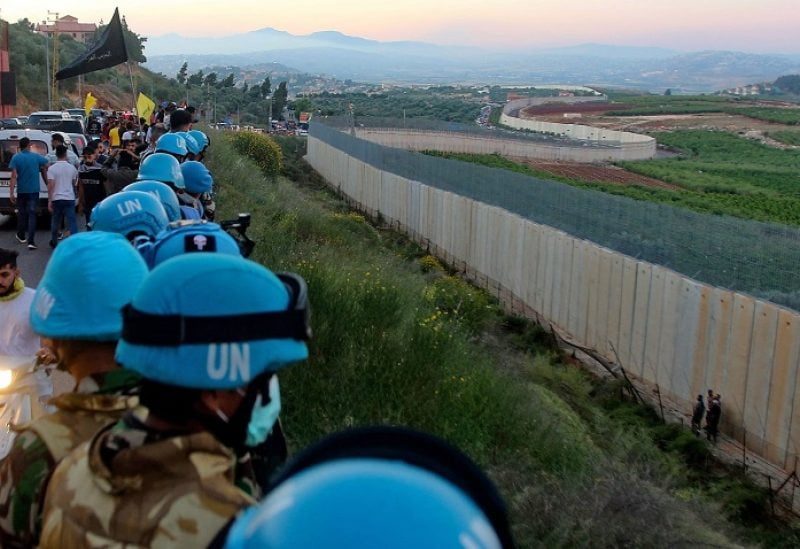
UNIFEL forces in South Lebanon
In the dispute between Lebanon and Israel, the issue of land borders is still unresolved. There is concern on the Lebanese side that Hezbollah may indirectly negotiate on behalf of Lebanon through U.S. mediation, taking advantage of the presidential vacuum. The possibility of mediation is currently under consideration within the U.S. administration, and a final decision has not been made yet.
However, according to Lebanese government sources, it is confirmed that the U.S. Special Envoy for Energy Affairs, Amos Hochstein, will visit Lebanon again. The exact date of his next visit has not been determined yet but is expected to happen at any time.
There may be genuine American mediation efforts to defuse the tensions and escalations between Lebanon and Israel within the framework of the desired stability regarding the situation with Israel. However, well-informed diplomatic sources question the effectiveness of this step in light of the continued presence of Hezbollah’s weapons. The previous justification for the existence of these weapons, which has shifted over time, was the liberation of Lebanese territory from Israeli occupation.
Prominent diplomatic sources indicate that the land borders are already defined and do not require demarcation but rather the resolution of disputed points to align the Blue Line with the actual borders. Additionally, there are the Shebaa Farms and the Kfar Shouba Hills, which are subjects being discussed for U.S. assistance. However, the details of how, when, and under what conditions this mediation will proceed are still unclear, and the situation is in its early stages.
However, sources suggest there is another perspective in Lebanon that differs from the view advocating for a resolution of the issue only in the presence of a regular presidency and government, rather than a caretaker government. According to this perspective, Lebanon should take advantage of this offer, regardless of its internal situation and regardless of the party claiming victory. The mistake would be allowing the state to be subjugated by any party seeking to profit from this process. Any liberation effort should be conducted within the framework of the state’s sovereignty, not the other way around. As a strategic expert notes, a state’s borders are the boundaries of its sovereignty over its territories.
Therefore, what good is liberating land without sovereignty? According to the sources, what matters most is the enforcement of the rule of law. Lebanon has an army and a role for the army, but its sovereignty, especially on the borders, is considered incomplete. It’s seen as compromised sovereignty. As long as the army cannot enforce the law in every part of the country, there is a sovereignty risk.
The sources emphasize that an adversary is an adversary, rights are rights, and a friend is a friend. Therefore, Lebanon should not reject any mediation to secure its rights, but it must invest internally in the sovereignty of the state and the rule of law.